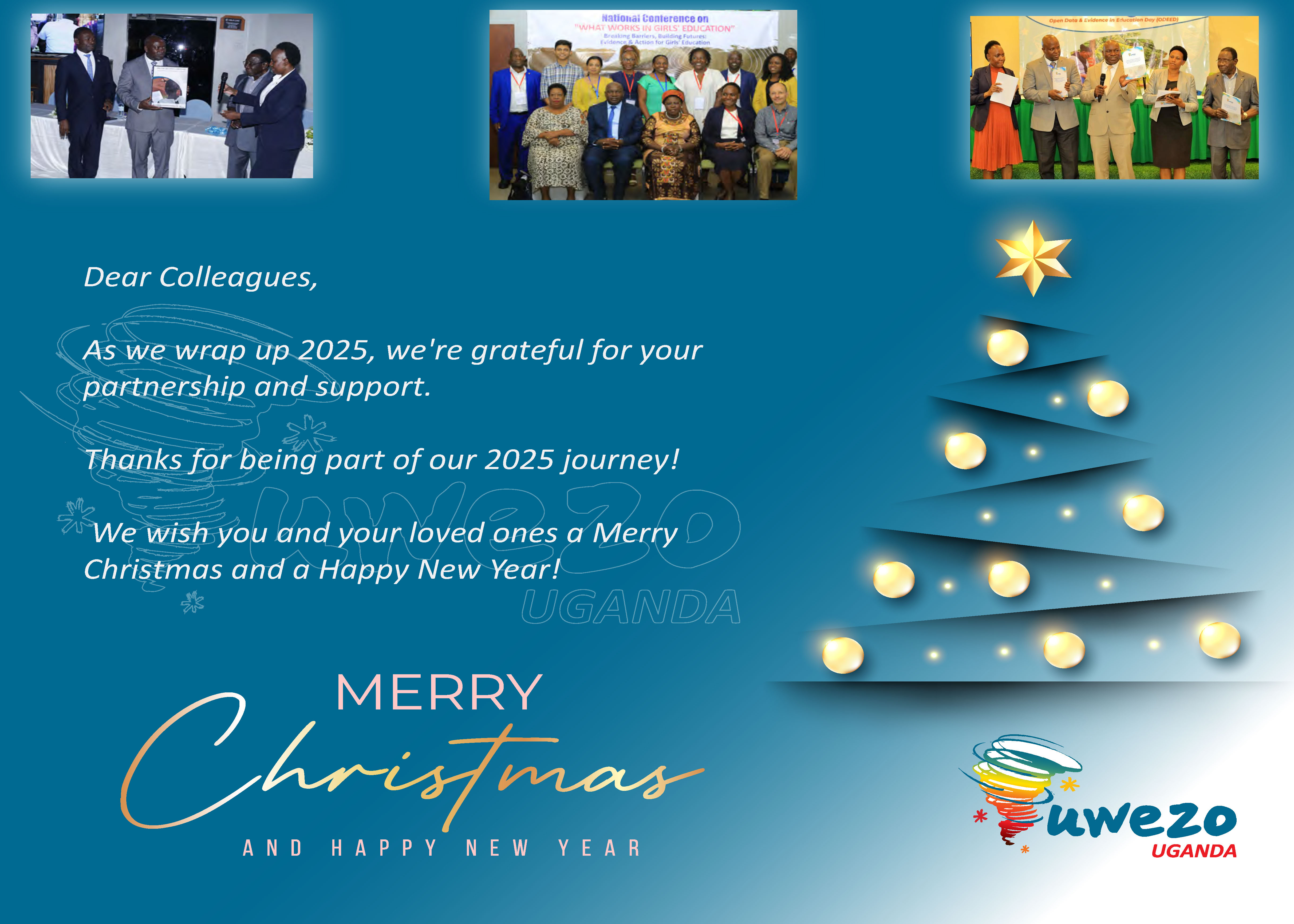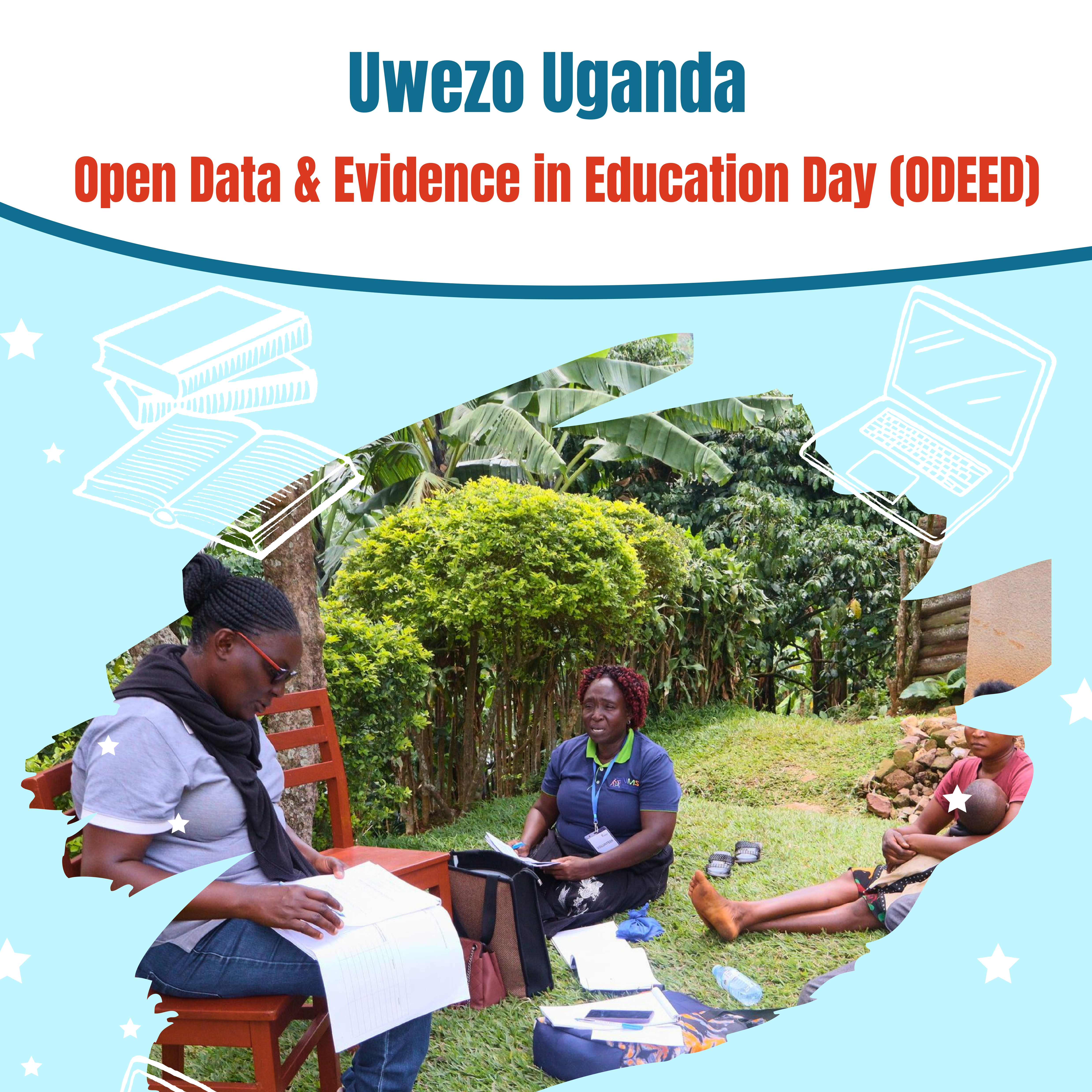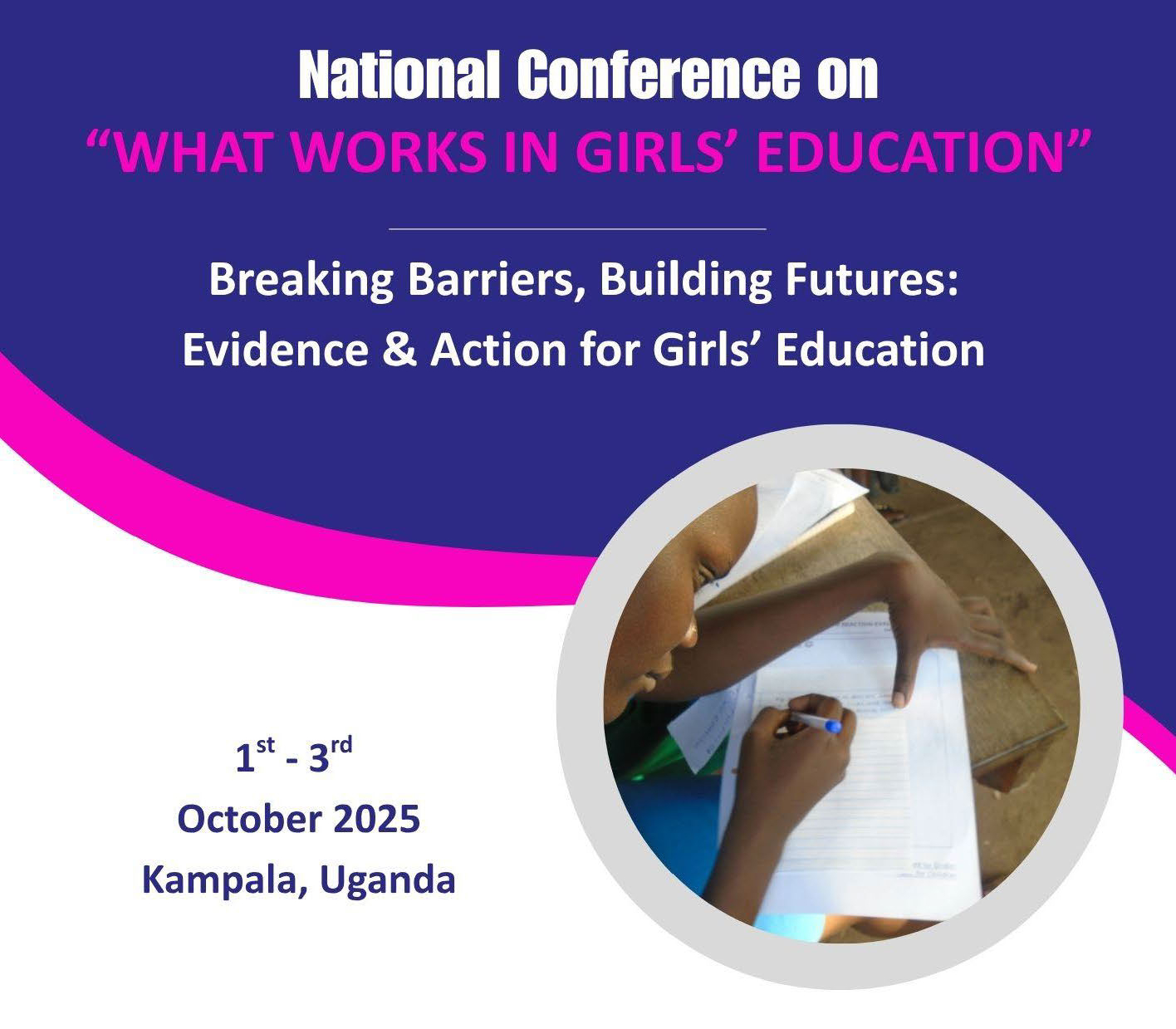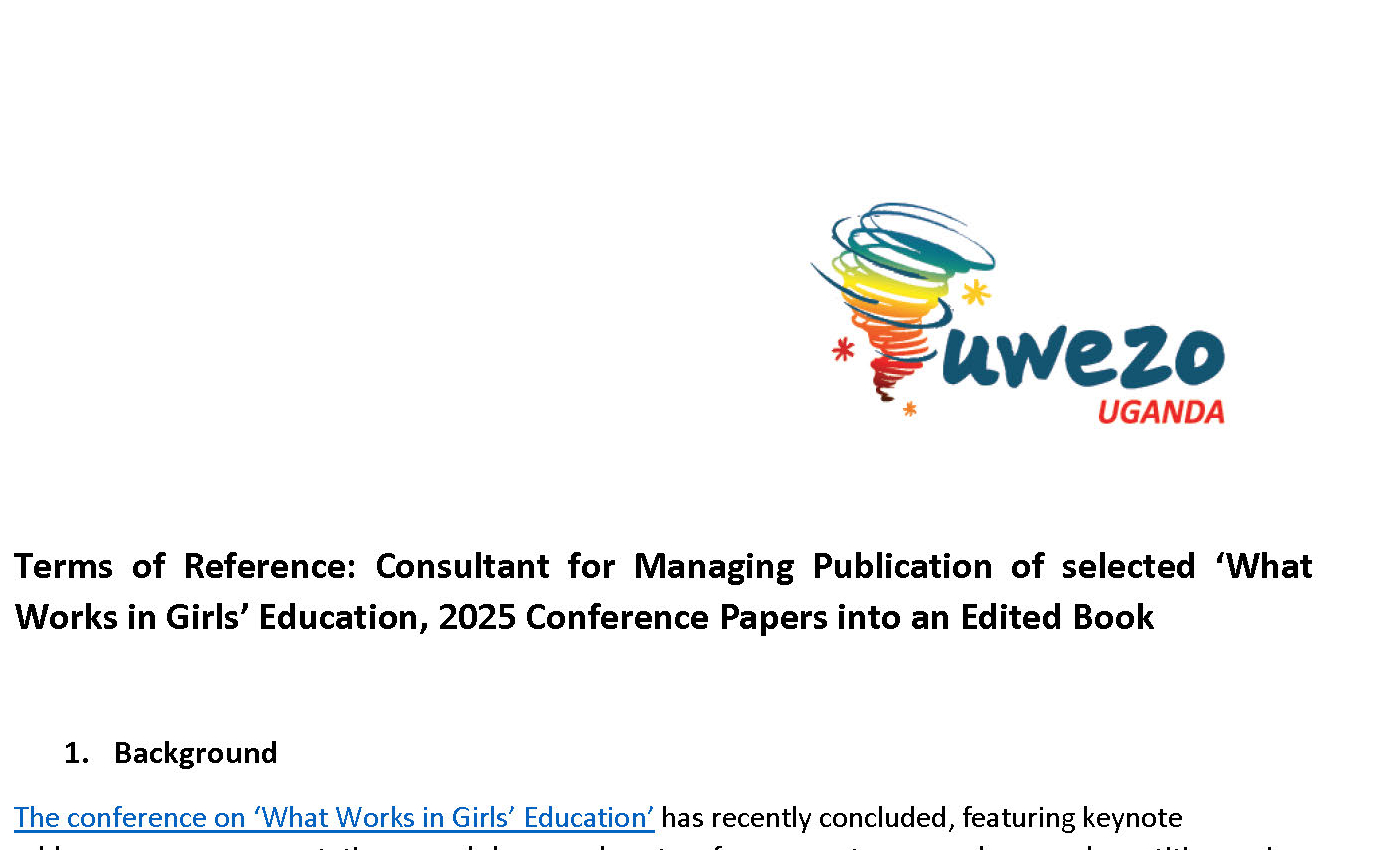An independent not-for-profit organisation operating in Uganda since October 2019, Uwezo Uganda actively seeks to contribute to a society in which all children are learning and realising their full potential.
We work towards this by demonstrating how to improve learning outcomes and keeping communities and leaders focused on learning through assessment, research, innovations, partnerships and advocacy.
For 10 years, we generated and disseminated independent assessment data, and contributed to amplifying the evidence of low learning outcomes and the fact that schooling does not equate to learning as a program under Twaweza East Africa.
A society in which all children are learning and realising their full potential
To promote support for quality education for all through assessment, research, engagement and influencing, in collaboration with other stakeholders







